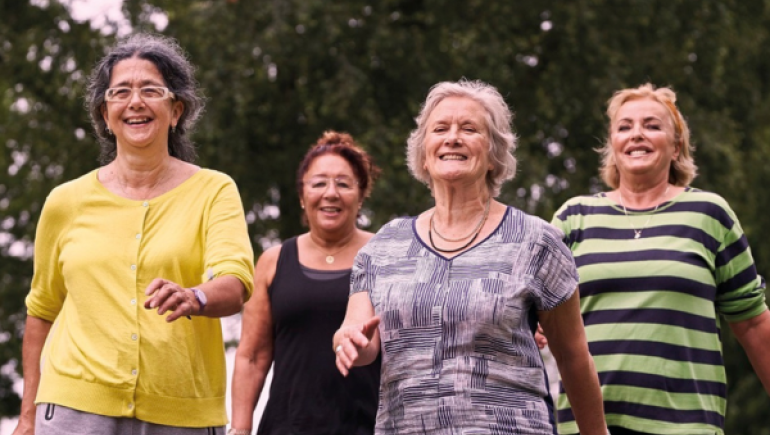Community sport and physical activity create £10.5billion in savings for the health and social care system a year, according to new research from Sport England.
The funding body says this relieves pressure on the NHS through the prevention of illness, reduced mental health service usage, fewer GP visits and a reduced need for informal (unpaid) care.
The savings are part of the annual social value of sport and activity, which is calculated at £107.2billion per year.
WELLBEING
Along with the healthcare savings, active lifestyles generate £96.7billion in annual wellbeing value for adults, children and young people taking part and volunteering in sport and physical activity.
Through in-depth analysis of Sport England’s Active Lives data, plus reviewing wider evidence for the health benefits of being active (including the costs associated with the treatment and care of illness and poor health), the research reveals the profound social and economic benefits of sport and physical activity for communities across England.
In partnership with State of Life, Sheffield Hallam University and Manchester Metropolitan University, Sport England’s research measured two types of social value: (i) the primary direct value to individuals through improved wellbeing (being happier and healthier); and (ii) the secondary wider value to society (such as savings made to the public purse), Wellbeing value (WELLBY) is the monetary value that can be placed on happiness, health and life satisfaction.

Active adults (those who do more than 150 minutes of physical activity a week) enjoy the greatest wellbeing value: the equivalent of £2,500 per person a year, compared to inactive adults.
Other highlights from the report include:
- Active lives relieve some of the NHS burden, preventing 1.3million cases of depression, 600,000 of diabetes and 57,000 of dementia (the UK’s leading cause of death) - saving billions of pounds a year.
- Active lives save £540million on reduced GP visits and £780million on reduced mental health service use
- Being physically active generates a wellbeing value of £2,500 per adult a year - while being 'fairly active' also brings significant benefits of £1,200 per adult.
- Active children and young people (aged 11 to 16) generate a wellbeing value of £4,100 annually; for fairly active children, it’s £3,100.
- Wellbeing values are higher than average for many groups that are most likely to experience inequalities in participation - such as older people, people with disabilities or a long-term health condition, as well as people from Asian backgrounds.
SOLUTIONS
Sport England chief executive Tim Hollingsworth said: “Our research is unequivocal in making the case for sport and physical activity to be a central part of the solutions to the issues facing our country. We build wealth through health: people playing sport and leading active lives turbo-charges wellbeing, prevents illness, relieves NHS pressure and can boost our health and economic growth.
“However, the shocking cost of inequalities in activity levels is a social and economic burden. If we can protect and invest in opportunities to play sport and be active, particularly for communities and people that face the most barriers to taking part, we will be healthier, wealthier, and happier.”

Professor Chris Whitty, Chief Medical Officer for England, said: “Being physically active is one of the best things we can do to stay healthy and independent throughout our lives, and sport is one of the most enjoyable ways to achieve this. The greatest health gains are from helping people who do little activity to do a bit more. This report shows that we need make it easier for particular groups to engage in physical activity including sport.”
Lord O'Donnell, economist and former Cabinet Secretary, said: “Constraints on public spending are severe. This makes it more important than ever to focus our investments on those most in need and where we can make the most difference. This new evidence from Sport England starts to point the way.”
Read the full report on the social value of sport and physical activity in England.








